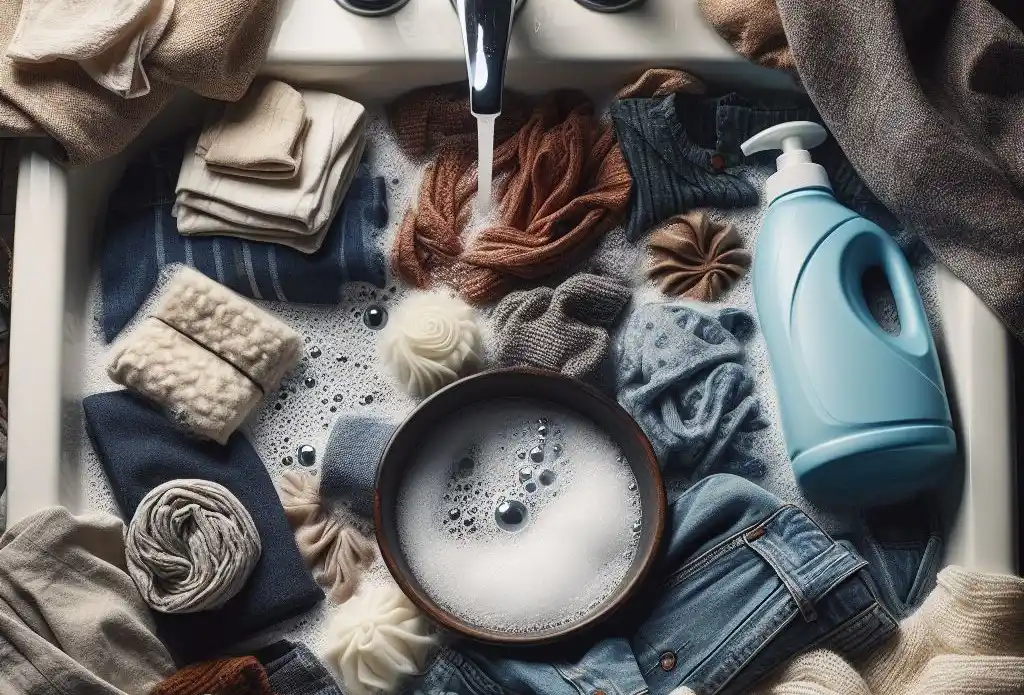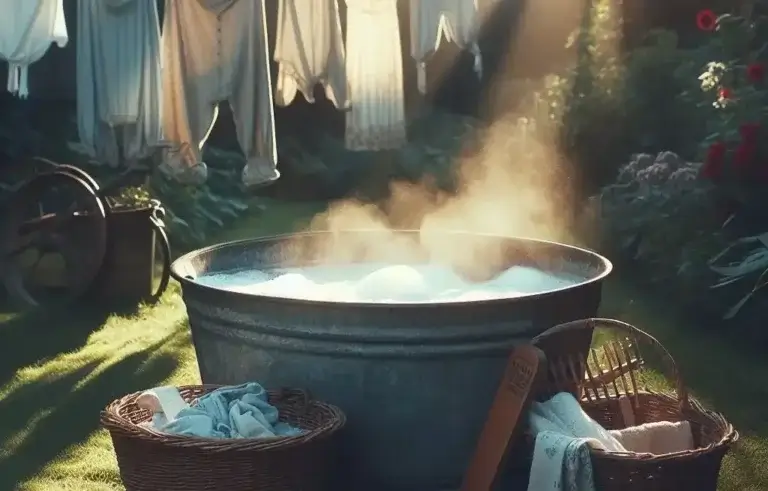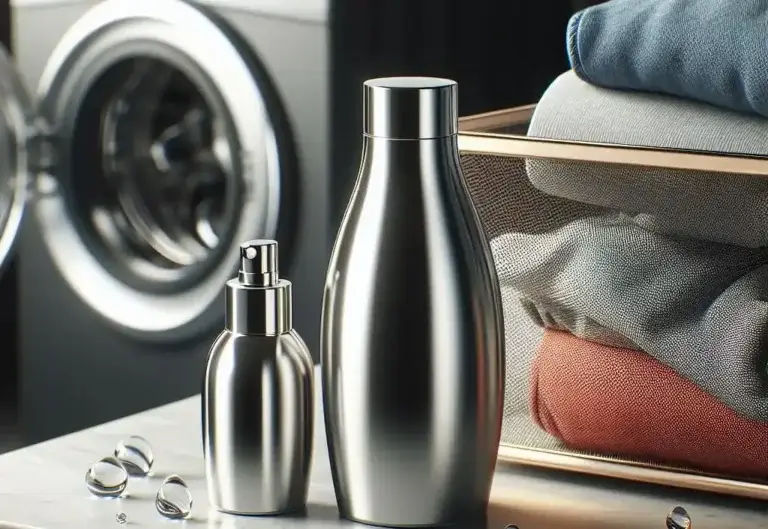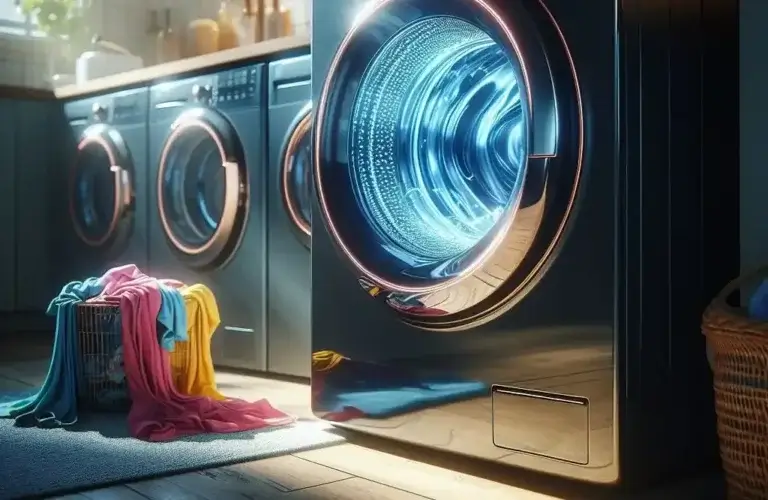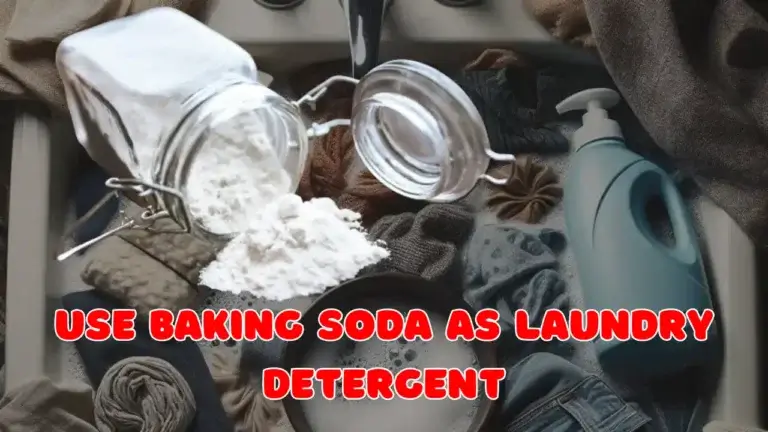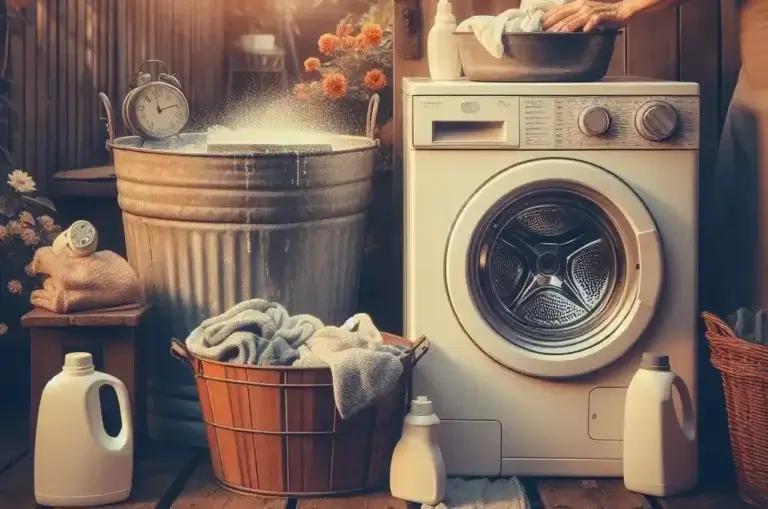Can I Wash Clothes Without Detergent? The Surprising Truth About Laundry Detergent Alternative
Have you ever found yourself about to do a load of laundry only to discover you’ve run out of laundry detergent? Or perhaps you’re looking for an eco-friendly alternative to traditional detergents? Washing clothes without detergent may seem counterintuitive, but it is actually possible in many situations.
In this comprehensive guide, we’ll cover everything you need to know about can I wash your clothes without detergent, from detergent substitutes you likely already have at home to tips for getting your best clean without suds. Read on to learn the surprising truth about doing laundry without detergent!
Table of Contents
Why Do We Use Laundry Detergent in the First Place?
Before we dive into the various detergent substitutes you can use, it helps to understand why we use laundry detergent at all.
Laundry detergent contains surfactants, which are compounds that reduce the surface tension of water. This allows the water to penetrate the fabric more effectively, loosening dirt, oils, and other soils from the clothing fibers. The agitation from the washing machine then removes the loosened soils so they can be rinsed away.
Detergents also contain builders and other ingredients like bleaches, optical brighteners, and enzymes to help remove stains, whiten fabrics, control water hardness, and more. So in short, detergent plays a crucial role in cleaning clothes and preparing them to be rinsed clean.
Is It Possible to Wash Clothes Without Any Detergent at All?
Now you might be wondering: if detergent does so much, is it even possible to get clothes clean without it?
The short answer is yes: you absolutely can wash clothes without detergent successfully in some situations. However, there are also some downsides to expect.
Washing clothes without detergent relies solely on the mechanical action of the washing machine’s agitation or tumbling to knock dirt and soils loose from the fabric.
While this is effective to an extent, soils will not solubilize as readily without detergent. So clothes may not get as deep-down clean as they would with detergent.
However, the agitation alone CAN effectively clean lightly soiled items, especially with multiple rinse cycles. So washing without detergent works best for mildly dirty laundry. Heavily soiled clothes are still best washed with detergent for superior cleaning power.
The other downside is that soils removed in the wash may redeposit back onto clothes without detergent to keep them solubilized so they can rinse cleanly away.
Now let’s explore some of the best options for washing laundry without traditional store-bought detergents. These substitutes work with and enhance the mechanical washing action instead.
Laundry Detergent Alternatives You Likely Already Have at Home
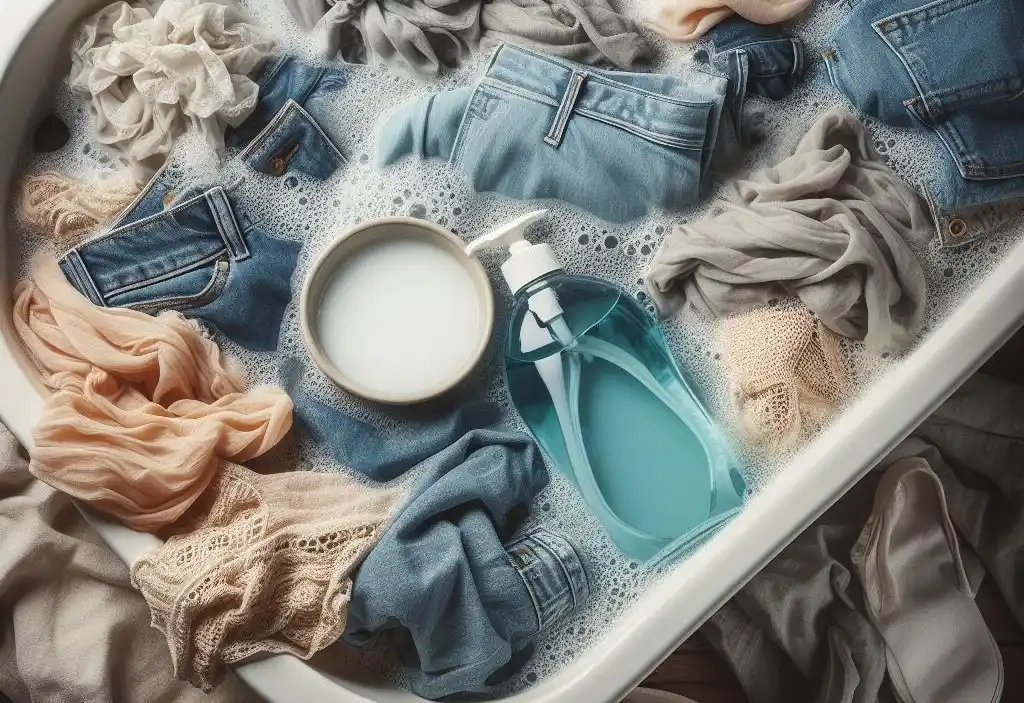
Chances there are several products under your sink or in the pantry that make excellent laundry detergent substitutes in a pinch! Let’s explore some of the best options.
Baking Soda
Yes, the humble box of baking soda in your fridge or pantry offers hidden laundry power!
Baking soda is a natural cleaning agent and surfactant alternative that helps lift dirt and remove odors from laundry when added to a normal wash cycle. It won’t produce suds like detergent, but about 1⁄2 to 1 cup per load helps to clean clothes.
Be aware that baking soda is alkaline, so avoid using on delicates and bright or colorful prints where colors may run. Stick to sturdy white fabrics instead.
White Vinegar
Acids offer cleaning power too, and white vinegar is a common item that makes an excellent laundry booster and rinse agent.
The acid in distilled white vinegar helps remove detergent residue that may dull clothes over time. It also acts as a natural fabric softener, leaving laundry smelling fresh and soft.
Add about 1⁄2 to 1 cup of vinegar to the rinse or wash cycle. You can also pour some in the washer drum before adding clothes. Take care to avoid using vinegar at the same time as bleach, as hazardous gases can form.
Lemon Juice
Like vinegar, the citric acid naturally found in lemon juice cuts through residue, disinfects, and deodorizes laundry. This makes lemons another great natural laundry rinse booster.
Squeeze the juice from 2-3 fresh lemons into the wash cycle or rinse cycle for fresh, clean smelling clothes. Be aware that using lemon could lighten or change the color of some fabrics over time.
Borax
An odorless mineral salt compound, Borax helps to soften water and acts as a laundry booster and stain remover. Add about 1⁄2 cup borax along with baking soda to your detergent-free wash.
Be aware Borax should NOT touch skin and isn‘t suitable for delicates or silk either. Use gloves when handling.
Shampoo or Body Wash
In a super pinch, liquid shampoos, body washes and even bar soaps offer surfactants that can wash away some dirt when added sparingly in the wash cycle.
Dish soaps containing grease-cutting agents like Dawn also work. Just take care not to use too much body wash or shampoo, or clothes won’t rinse clean. About 2 tablespoons should do per load.
The skin moisturizers in body products can leave behind residue and a slippery feel if overused. So use extremely sparingly and stick to bath products without conditioners or moisturizing ingredients if possible.
Dishwashing Detergent
Any type of dishwashing detergent or dish soap also contains surfactants to cut grease, so these make one more good laundry detergent substitute choice.
As with shampoos and body wash, use a tiny amount – just 1-2 tablespoons per full load or you may experience difficulties rinsing cleanly.
Avoid hand dishwasher detergents containing bleaching agents, as these could damage or discolor clothing.
Tips for Washing Clothes Without Detergent
While the products above help clean without detergent to an extent, you’ll get best results following these handy tips:
- Shake, brush and pre-treat any visible stains before washing to help loosen soils before the cycle begins. This gives the agitation its best chance at lifting away dirt.
- Wash similar colors together, as detergent isn’t present to prevent any potential dye transfer issues.
- Wash only lightly soiled items without detergent whenever possible for cleaner results. For sweaty gym clothes or heavily soiled items, it’s still best to use some detergent if possible.
- Wash clothes in cold or warm water cycles, not hot. Agitation works better to release stains in cooler temps.
- Add laundry boosters like baking soda, vinegar, or lemon juice as directed above to aid cleaning.
- Use multiple rinse cycles to ensure soils are fully flushed away once released.
- Remove clothes promptly from the washer after the final rinse so soils don’t re-deposit on damp items
- Inspect clothes after drying – if any visible stains remain, rewash using detergent before wearing or storing
- Use odor eliminating sprays like Febreze if clothes retain any musty smells despite not using detergent
- Consider air drying instead, as heat from the dryer can set in stains as well
Can I Wash Clothes Without Detergent
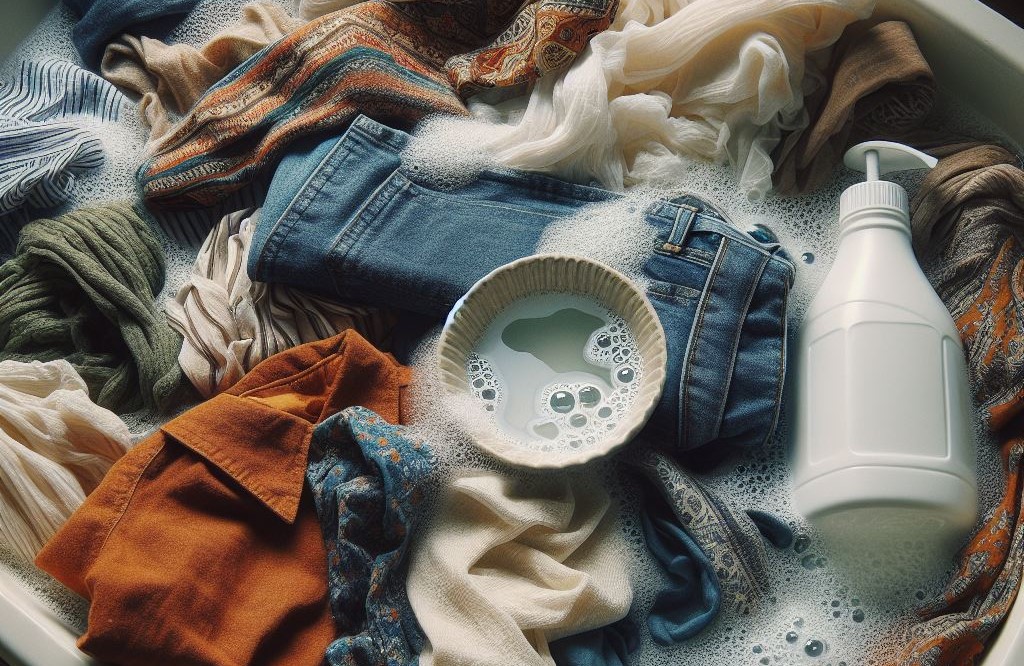
Technically, you can wash clothes without detergent, but the effectiveness will be significantly limited. Here’s a breakdown:
Effectiveness of washing without detergent:
- Water alone: May remove some light surface dirt but not effective against stains, odors, or bacteria. Clothes can feel stiff and unclean.
- Hot water: More effective than cold water but still not enough for thorough cleaning. May even shrink or damage delicate fabrics.
Alternative cleaning options:
- Natural alternatives: Baking soda, white vinegar, lemon juice, borax, or even dishwashing liquid (diluted) can be used as mild detergents. However, effectiveness and safety vary depending on fabric type and stain.
- Commercial detergent alternatives: Consider eco-friendly laundry balls or strips made with natural ingredients. These are often marketed as detergent-free, but they still use cleaning agents.
Things to consider before going detergent-free:
- Soil level: Heavily soiled clothes will require proper detergent for effective cleaning.
- Fabric type: Delicate fabrics may be damaged by alternative cleaning methods.
- Stain types: Stubborn stains might require specific stain removers.
- Odors: Sweat and body odor can be difficult to remove without detergent.
Overall:
- While washing without detergent may be a temporary solution in a pinch, it’s not recommended as a regular practice.
- If you’re looking for eco-friendly alternatives, consider natural cleaning options or eco-friendly detergent products.
Remember, cleanliness and hygiene are important. If you’re unsure about how to clean your clothes effectively, consult a professional laundry service or research specific methods for your fabric and stain types.
I hope this information helps you make an informed decision!
Which Fabrics and Garments Can I Wash Without Detergent?
As mentioned above, lightly to moderately soiled items are the best candidates for washing without detergent. This includes:
- Workout clothes and athletic gear: Sweaty gym clothes are easily cleaned with plain water and odor eliminators like vinegar or baking soda.
- Jeans and sturdy cottons: Standard rinse cycles flush away dirt and body oils well enough for jeans, tees, towels, and similar items assuming no major stains are present from spills etc. Add laundry boosters too.
- Synthetic blends and performance fabrics: Modern technical fabrics often only need a brief wash to refresh. However, skipped detergent washes should be occasional only. These fabrics still require true cleaning at times.
Meanwhile, heavily soiled work uniforms, grease/food stained items, or anything with ground in dirt are still best washed with a standard detergent even if just occasionally. Delicates like silks and wools should not wash without detergent either.
FAQs: Washing Clothes Without Laundry Detergent
Wondering if you can get specific items clean without suds? Here are answers to some frequently asked questions about washing laundry without detergent:
Can I wash sheets without detergent?
Yes, you can wash lightly used sheets a time or two without detergent by adding baking soda and vinegar to the cycles and using multiple rinses. But regularly wash bedding WITH detergent to fully remove body oils and dead skin cells that accumulate.
What about towels? Can I wash them without detergent?
Like sheets, you can occasionally wash bath towels without detergent by adding laundry boosters and allowing extra rinse time. But don’t skip detergent every time or towels may get musty.
Can whites wash clean without detergent?
Yes! Whites like t-shirts, socks and dishcloths wash surprisingly well with just baking soda, vinegar and hot water, especially if not heavily stained. Bleach boosters in detergents aren’t crucial for every wash.
What’s the best way to wash baby clothes without detergent?
Baby skin is sensitive, so stick to using just baking soda and vinegar, and skip other harsher DIY laundry options. Be sure to use multiple rinses to fully eliminate soils and prevent irritation. Air dry instead of machine drying as well whenever possible.
Can I wash cloth diapers without detergent?
In a pinch yes, cloth diapers can wash clean without harsh detergents by using a half cup of baking soda paired with vinegar rinses and multiple flushes. But don’t skip detergent altogether long term. Diapers require occasional sanitizing washes.
When NOT To Wash Laundry Without Detergent
While you now know washing clothes without laundry detergent is possible and even effective in many cases when using substitutes properly – it isn’t right for every situation.
Here are some examples where you SHOULD refrain from washing laundry without detergent:
- If dealing with major stains like blood, grease, or food spills that require stain removal agents
- For mold or mildew issues where sanitizing and disinfecting is crucial
- If washing smells persist no matter what between washes without detergent
- For extremely dirty items like vehicle oil/grease stained mechanic overalls or the like
- For delicates and specialty garments that require gentler cleansers
- If skin irritation occurs from residue or buildup left behind
- If attempting to save detergent due to budget reasons (there ARE low cost green options available if needed)
- If skipping detergent repeatedly long term, not just occasionally
The bottom line? Washing without detergent here and there probably won’t ruin your clothes in one go. But make it the exception and not the rule for good laundry habits overall.
The Takeaway: Skip the Soap Sparingly, Use Laundry Boosters, and Rinse Thoroughly!
Hopefully by now you see that washing clothes without laundry detergent can work in a pinch when using various homemade replacements to enhance water’s cleaning power.
Is going detergent-free as effective as using suds? Generally no – detergents aid deeper cleaning and stain fighting. However, when stuck without detergent, dont despair!
You CAN wash clothing moderately well without harsh cleansing chemicals by:
- Choosing the best fabrics like synthetics and lightly worn cottons
- Adding laundry boosters like baking soda, vinegar or lemon juice
- Using home products with grease cutting agents extremely sparingly
- Shaking and pre-treating any tough stains beforehand
- Washing in cold water, using multiple rinses, and skipping the dryer
- Accepting clothing may need rewashing with detergent if stains persist
What it comes down to is avoiding truly heavily soiled laundry, setting realistic expectations for cleaning level, taking advantage of mechanical wash action, and fully rinsing away lifted soils that try to cling without detergent to solubilize them.
While not a perfect approach, these detergent substitutes DO allow you to clean the majority of clothing well enough between trips to the store when you find yourself stuck wondering “can I wash clothes without detergent?“. So ditch the suds sparingly but strategically, and give it a try with the right items!
I hope this guide gave you confidence to tackle laundry day without heading straight for the detergent aisle next time you run out! Let me know if you have any other questions.

